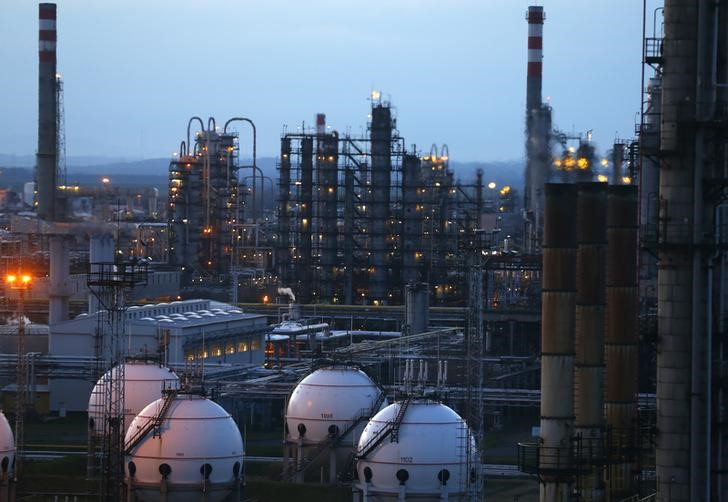Investing.com — Oil prices rose on Tuesday, recovering somewhat after the US announced plans to buy crude for its strategic reserves, although concerns remain about weaker future demand.
At 09:30 ET (13:30 GMT), the price rose 0.2% to $71.15 per barrel, while it rose 0.3% to $67.58 per barrel.
Both contracts fell more than 6% on Monday after an Israeli strike on Iran over the weekend bypassed Tehran’s oil and nuclear infrastructure, quelling fears of a serious escalation of the Middle East conflict.
As a result, traders quickly adjusted the risk premium associated with oil prices.
SPR refilling provides support
Crude oil benchmarks got a boost late Monday after the U.S. government said it was seeking 3 million barrels of oil for the Strategic Petroleum Reserve for delivery through May next year, bringing a new substantial buyer to the market.
The American Petroleum Institute industry group will release a weekly report on U.S. crude inventories later Tuesday, while the Energy Information Administration will release the official report Wednesday.
Economic data as a guide
That said, concerns remain about future demand given global economic weakness, and particularly in China.
Activity data from top oil importer China will be released on Thursday, followed by data from the US for the third quarter.
The numbers – the Federal Reserve’s favorite inflation gauge – will be released on Friday, as will the figures for October.
Tensions in the Middle East continue to draw attention
Fears of supply disruptions in the Middle East due to a worsening conflict were also a major driver of oil prices last month, especially after Iran attacked Israel in early October.
The Israeli attack over the weekend was in retaliation for the attack in early October.
Tehran was seen to downplay the impact of the attack but still threatened retaliation against Israel for the attack, leaving some elements of the risks to the Middle East still in play.
Israel also showed little intention to scale back its offensive against Hamas and Hezbollah, limiting hopes for a possible ceasefire in the Middle East.
Oil markets are preparing for US elections
Sentiment towards oil was also tense ahead of the US presidential election, which is less than a week away. The dollar rose ahead of the election, putting pressure on oil markets as traders braced for a close race between Donald Trump and Kamala Harris.
Recent polls and prediction markets showed Trump gaining some ground against Harris, with a Trump victory likely to usher in inflationary policies in the coming months.
A change in the US administration also heralds a shift in the country’s policy toward the Middle East.
(Ambar Warrick contributed to this article.)


